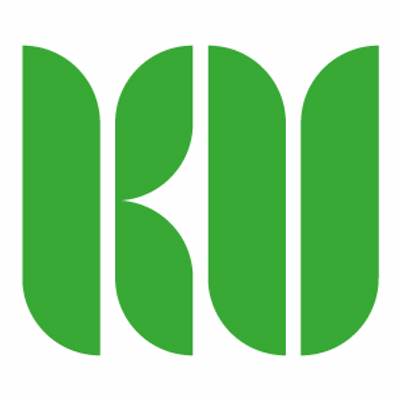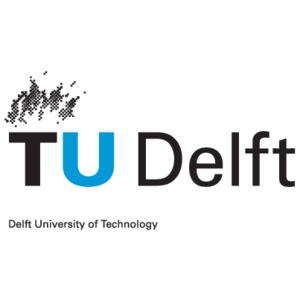Google Scholar
See the following -
After Aaron, Reputation Metrics Startups Aim To Disrupt The Scientific Journal Industry
Aaron Swartz was determined to free up access to academic articles. He perceived an injustice in which scientific research lies behind expensive paywalls despite being funded by the taxpayer. The taxpayer ends up paying twice for the same research: once to fund it and a second time to read it... Read More »
- Login to post comments
Google Scholar Indexes Open Access Books
 The length of monographs and their level of treatment pose unique challenges in a search environment. Monographs generally describe mature work unlike journal articles, which usually describe early stage work. As a result, it can be hard to achieve a successful search experience for restricted access monographs, according to Anurag Acharya of Google Scholar. After asking Acharya (co-founder of Google Scholar) why Google Scholar did not index monographs, Frances Pinter of Knowledge Unlatched (KU) says, "I realized that such challenges fall by the wayside with Open Access books"...
The length of monographs and their level of treatment pose unique challenges in a search environment. Monographs generally describe mature work unlike journal articles, which usually describe early stage work. As a result, it can be hard to achieve a successful search experience for restricted access monographs, according to Anurag Acharya of Google Scholar. After asking Acharya (co-founder of Google Scholar) why Google Scholar did not index monographs, Frances Pinter of Knowledge Unlatched (KU) says, "I realized that such challenges fall by the wayside with Open Access books"...
- Login to post comments
Is Scholarly Use of R Beating SPSS Already?
 One of us (Muenchen) has been tracking The Popularity of Data Science Software using a variety of different approaches. One approach is to use Google Scholar to count the number of scholarly articles found each year for each software. He chose Google Scholar since it searches "across many disciplines and sources: articles, theses, books, abstracts, and court opinions, from academic publishers, professional societies, online repositories, universities, and other web sites." Figure 1 shows the results from 1995 through 2016. Data collected in 2018 showed that while SPSS use dropped 39% drop from 2017 to 2018, its use was still 66% higher than R in 2018. Read More »
One of us (Muenchen) has been tracking The Popularity of Data Science Software using a variety of different approaches. One approach is to use Google Scholar to count the number of scholarly articles found each year for each software. He chose Google Scholar since it searches "across many disciplines and sources: articles, theses, books, abstracts, and court opinions, from academic publishers, professional societies, online repositories, universities, and other web sites." Figure 1 shows the results from 1995 through 2016. Data collected in 2018 showed that while SPSS use dropped 39% drop from 2017 to 2018, its use was still 66% higher than R in 2018. Read More »
- Login to post comments
Mainstream Academia Embraces Open Source Hardware
 Twenty years ago, even staunch proponents of free and open source software like Richard Stallman questioned the social imperative for free hardware designs. Academics had barely started to consider the concept; the number of papers coming out annually on the topic were less than could be counted on someone's fingers. Not anymore! Not only has the ethical authority of Stallman embraced free hardware and free hardware design, but so has the academic community. Consider the graph below, which shows the number of articles on open source hardware indexed by Google Scholar each year from 2000 to 2017. In the last 17 years, the concept of open source hardware has erupted in ivory towers throughout the world. Now more than 1,000 articles are written on the topic every year.
Twenty years ago, even staunch proponents of free and open source software like Richard Stallman questioned the social imperative for free hardware designs. Academics had barely started to consider the concept; the number of papers coming out annually on the topic were less than could be counted on someone's fingers. Not anymore! Not only has the ethical authority of Stallman embraced free hardware and free hardware design, but so has the academic community. Consider the graph below, which shows the number of articles on open source hardware indexed by Google Scholar each year from 2000 to 2017. In the last 17 years, the concept of open source hardware has erupted in ivory towers throughout the world. Now more than 1,000 articles are written on the topic every year.
- Login to post comments
Overcoming Technical Problems For Accessing Vital Research: Progress Report
Last week, I sought suggestions for addressing the technical problems faced by an international group of researchers as they try to maintain and use their online research library. Since I received such an overwhelming number of responses, I am sharing part of my progress report that I sent to my research group. Read More »
- Login to post comments
Riled Up By Elsevier’s Take-Downs? Time To Embrace Open Access
The publishing giant Elsevier owns much of the world’s academic knowledge, in the form of article copyright. In the past few weeks it has stepped up enforcement of its property rights, issuing “take-down notices” to Academia.edu, where many researchers post PDFs of their articles. Read More »
- Login to post comments
Scientists Manage Research with Open Source Zotero
Citation management tools are an easy way to organize electronic citations and PDFs into a single interface. They also allow you to export citations as a formatted bibliography. Many of them will also interact with a word processor for in-text citations. The two biggest cost-free, client-based tools are Mendeley and Zotero. I’m going to focus on Zotero, which is free and open source. It’s also the tool I like most for handling my own citations...
- Login to post comments
TU Delft Institutional Repository Implements New Pure System to Support Open Access and Open Science
 The Open Access policy has taken effect from 1 May 2016. From now on, all research output has to be published in the TU Delft Institutional Repository. This because it’s our mission to make scientific knowledge accessible online and free of charge to all users. We have known about the coming of the Open Access policy for a while now. Researchers have been informed, among others during TU Delft Library’s Open Science Roadshow which has visited all Faculties...
The Open Access policy has taken effect from 1 May 2016. From now on, all research output has to be published in the TU Delft Institutional Repository. This because it’s our mission to make scientific knowledge accessible online and free of charge to all users. We have known about the coming of the Open Access policy for a while now. Researchers have been informed, among others during TU Delft Library’s Open Science Roadshow which has visited all Faculties...
- Login to post comments
Unintentional Benefits Of Open Access: The Broader Impact Of Making Publications Free
[...] But now we’ve moved into a world where everything is done electronically. Through the power of PubMed, Google Scholar and numerous others, you can obtain PDFs of many articles via your institution. And now, many of those articles are available under Open Access rules – so anyone can access them, regardless of academic affiliation. [...] Read More »
- Login to post comments
Why openly available abstracts are important - overview of the current state of affairs
 The value of open and interoperable metadata of scientific articles is increasingly being recognized, as demonstrated by the work of organizations such as Crossref, DataCite, and OpenCitations and by initiatives such as Metadata 2020 and the Initiative for Open Citations. At the same time, scientific articles are increasingly being made openly accessible, stimulated for instance by Plan S, AmeliCA, and recent developments in the US, and also by the need for open access to coronavirus literature. In this post, we focus on a key issue at the interface of these two developments: The open availability of abstracts of scientific articles. Abstracts provide a summary of an article and are part of an article's metadata. We first discuss the many ways in which abstracts can be used and we then explore the availability of abstracts. The open availability of abstracts is surprisingly limited. This creates important obstacles to scientific literature search, bibliometric analysis, and automatic knowledge extraction.
The value of open and interoperable metadata of scientific articles is increasingly being recognized, as demonstrated by the work of organizations such as Crossref, DataCite, and OpenCitations and by initiatives such as Metadata 2020 and the Initiative for Open Citations. At the same time, scientific articles are increasingly being made openly accessible, stimulated for instance by Plan S, AmeliCA, and recent developments in the US, and also by the need for open access to coronavirus literature. In this post, we focus on a key issue at the interface of these two developments: The open availability of abstracts of scientific articles. Abstracts provide a summary of an article and are part of an article's metadata. We first discuss the many ways in which abstracts can be used and we then explore the availability of abstracts. The open availability of abstracts is surprisingly limited. This creates important obstacles to scientific literature search, bibliometric analysis, and automatic knowledge extraction.
- Login to post comments